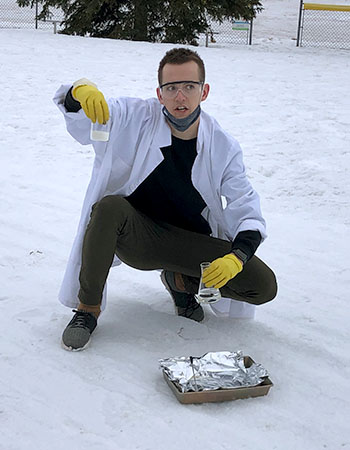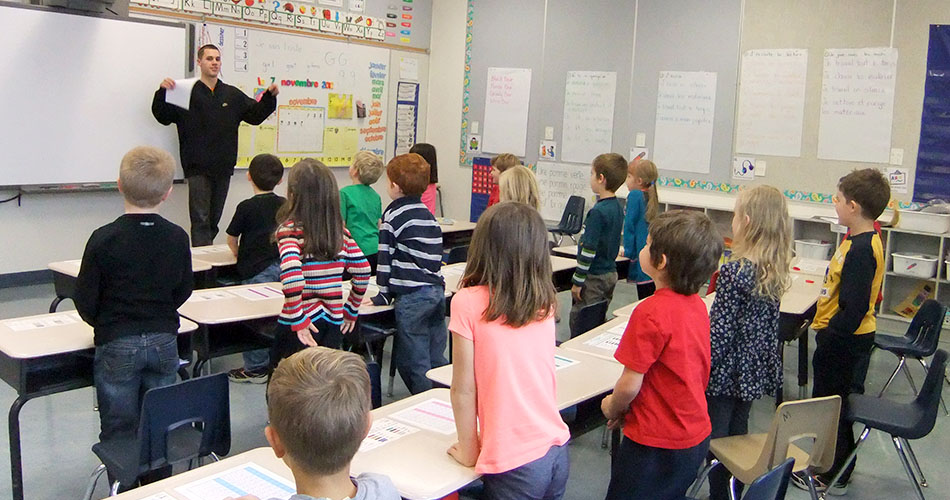What is THE Bachelor of Education (Elementary)?
This degree is an opportunity for students interested in becoming an elementary (primary) teacher, educating students from kindergarten to Grade 6.
Students in this program spend their first two years of study at the Augustana Campus in Camrose and the final two years on the North Campus in Edmonton.
Bachelor of education (elementary) at Augustana
This generalist program aligns with the immersive and experiential style of learning already in action at Augustana. Build confidence in yourself and form connections with your instructor to develop a strong foundation for continued success throughout the program and beyond.
Starting your education journey at the University of Alberta’s rural-based campus will offer you a unique perspective through engagement with diverse communities outside an urban setting.
Program Information
Elementary Education is a generalist program so there are no majors or minors to choose!
No application is needed to transition from Augustana to the North Campus within the program. Graduates from this program will be recommended for teacher certification in Alberta.
Academic Innovations
All programs at Augustana include a wide-ranging liberal arts and sciences core, taught within our unique “3-11” calendar.
Careers
A bachelor of education (BEd) degree will equip you to educate and empower students from kindergarten to Grade 6 through a fulfilling career as a(n):
- Elementary School Teacher
- Education administrator
- English language learning teacher
- Curriculum developer
- and many more!
Featured AlumnUS

Teacher (and podcaster on the side)
“Augustana taught me to approach experts and learn from them through conversation,” Cole says. “That process opened up a new method of learning and a curiosity for the world.”
Course Highlights
Orientation to teaching. For the laboratory component of the course, a student spends half a day per week assisting in a local elementary or secondary school.
Study of a variety of movement activities, including play, games, gymnastics and dance, in which children participate.
Examination of frameworks, issues and trends regarding the role of technology in education. Students will gain hands-on experience applying learning theory and sound pedagogy to integrating technology into the school curriculum, using tools for internet use, digital media processing, multimedia/hypermedia presentations and common software.
A seminar examining the oral history and tradition as systems of knowledge that preserve and pass on knowledge about people, cultures and history. It focuses on historic and contemporary approaches to oral history and traditions, including its use as traditional ecological knowledge (TEK). Students will be taught best practices for conducting research in oral history and tradition, including how to conduct community based research.
The course will introduce students to ways of working collaboratively to complete a group project. Students will examine a topic from a single disciplinary perspective.
